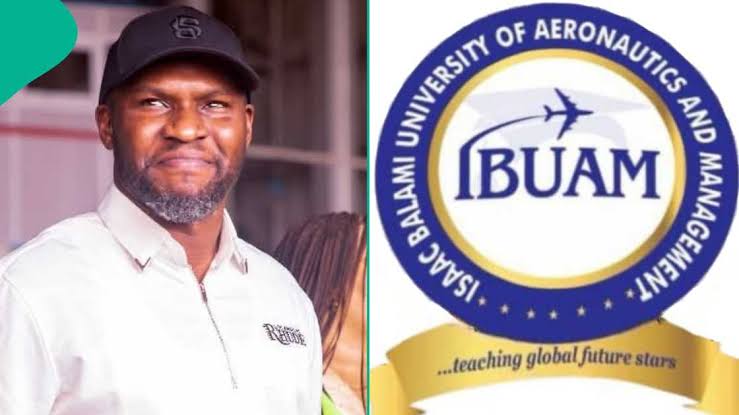Nigeria unveils Africa’s first private aeronautics university
… to tackle projected shortage of 65,000 aviation professionals by 2040
The Nigerian aviation sector marked a milestone with the official unveiling of Isaac Balami University of Aeronautics and Management (IBUAM), Africa’s first privately owned university dedicated to aeronautics and management education.
Speaking at the unveiling ceremony on Friday in Abuja, Isaac Balami, the Founder and Chancellor, described the institution as a revolution designed to shape the future of aviation and leadership in Africa.
He said the establishment of the university responds directly to the International Civil Aviation Organization (ICAO) projection that Africa will require over 65,000 new aviation professionals by 2040, adding that IBUAM was founded to fill that gap with locally trained, globally competitive experts.
“This is not just a university; it is a movement to redefine aviation and leadership education in Africa. Every graduate of IBUAM will not only earn a degree but also a private pilot’s license, with options for commercial certification,” Balami stated.
The institution, he noted, is designed to offer hands-on training in aircraft maintenance, flight operations, and aviation management, in partnership with the Nigerian Civil Aviation Authority (NCAA) and the European Union Aviation Safety Agency (EASA).
Students, he added, will log over 1,000 hours of live aircraft experience and access cutting-edge simulation technologies from global manufacturers like Boeing, Airbus, and Rolls-Royce.
Balami also announced that the university’s facilities are tied to an existing Aircraft Maintenance, Repair and Overhaul (MRO) centre in Lagos, ensuring students receive both theoretical and practical experience throughout their academic journey.
“Our students will spend their holidays and weekends in the hangars, engine shops, avionics bays, and structural repair sections. By graduation, they will be industry-ready professionals who can work unsupervised anywhere in the world,” he said.
He added that the application into the institution is currently on and interested and qualified candidates can apply via the university’s website.
Festus Keyamo, minister of Aviation and Aerospace Development, lauded the initiative as a “revolutionary step” that aligns with President Bola Ahmed Tinubu’s vision of supporting local enterprise and human capital development.
“This university satisfies two key pillars of our five-point agenda, support for indigenous entrepreneurship and human capital development.
“For the first time, Africa now has a university that integrates flying school, aviation management, and MRO training under one institution. What the government could not combine, a visionary Nigerian has done,” Keyamo said.
The Minister further urged state governments and corporate bodies to support indigent students aspiring to join the university, noting that the institution’s model complements ongoing government efforts to bridge professional gaps in the aviation sector, particularly in the training of air traffic controllers, engineers, and pilots.
Chris Ona Najomo,, director-general of the Nigerian Civil Aviation Authority (NCAA), also commended the establishment of IBUAM, describing it as a vital partner in promoting safety, innovation, and professionalism within the sector.
Read also: FG, EU deepen ties on education through €570m Erasmus+ programme
“A strong regulatory system depends on the quality of human capital that drives it. The NCAA looks forward to working with this university on curriculum development, safety management education, and compliance training.
“By combining aeronautics with management studies, IBUAM will produce complete professionals, technically competent, ethically grounded, and globally competitive,” Najomo said.
Paul Jemitola, Vice Chancellor, underscored the institution’s commitment to excellence, discipline, and innovation, while Hajiya Imaan Sulaiman-Ibrahim, the Minister of Women Affairs announced plans to sponsor 100 young women annually from across Nigeria’s six geopolitical zones to study at the university.

